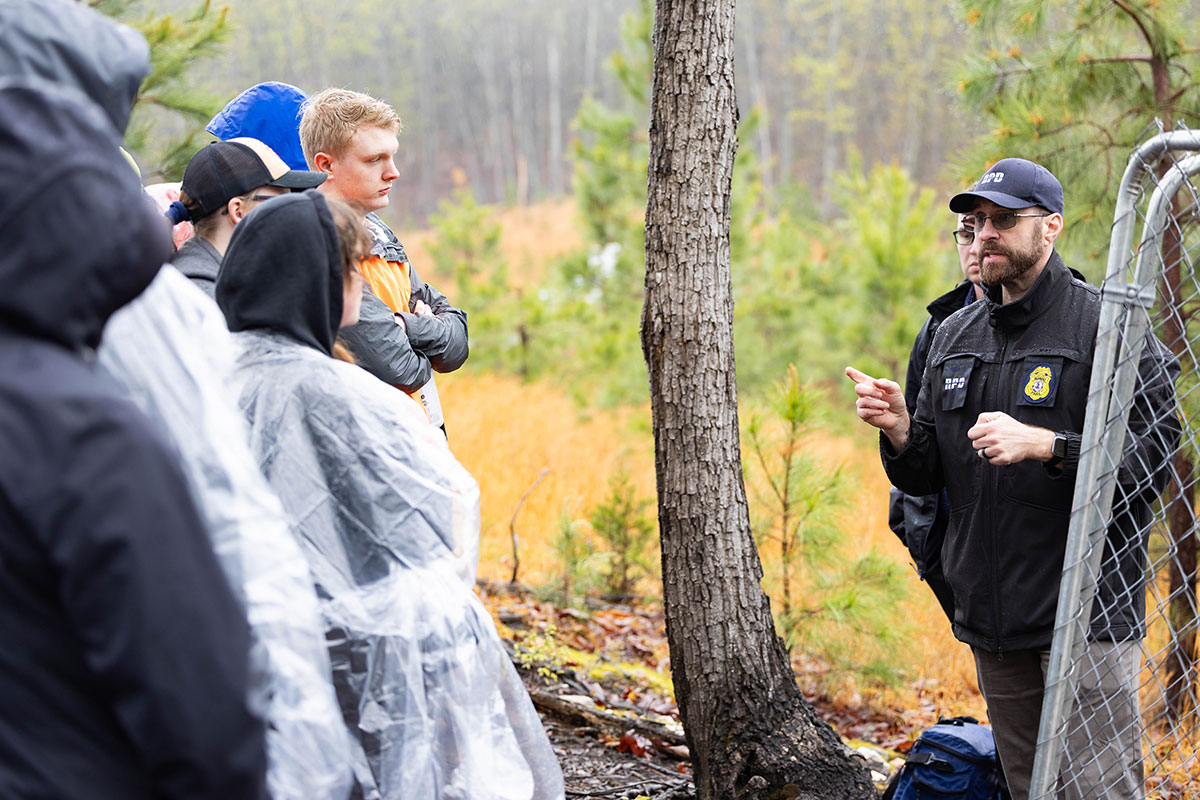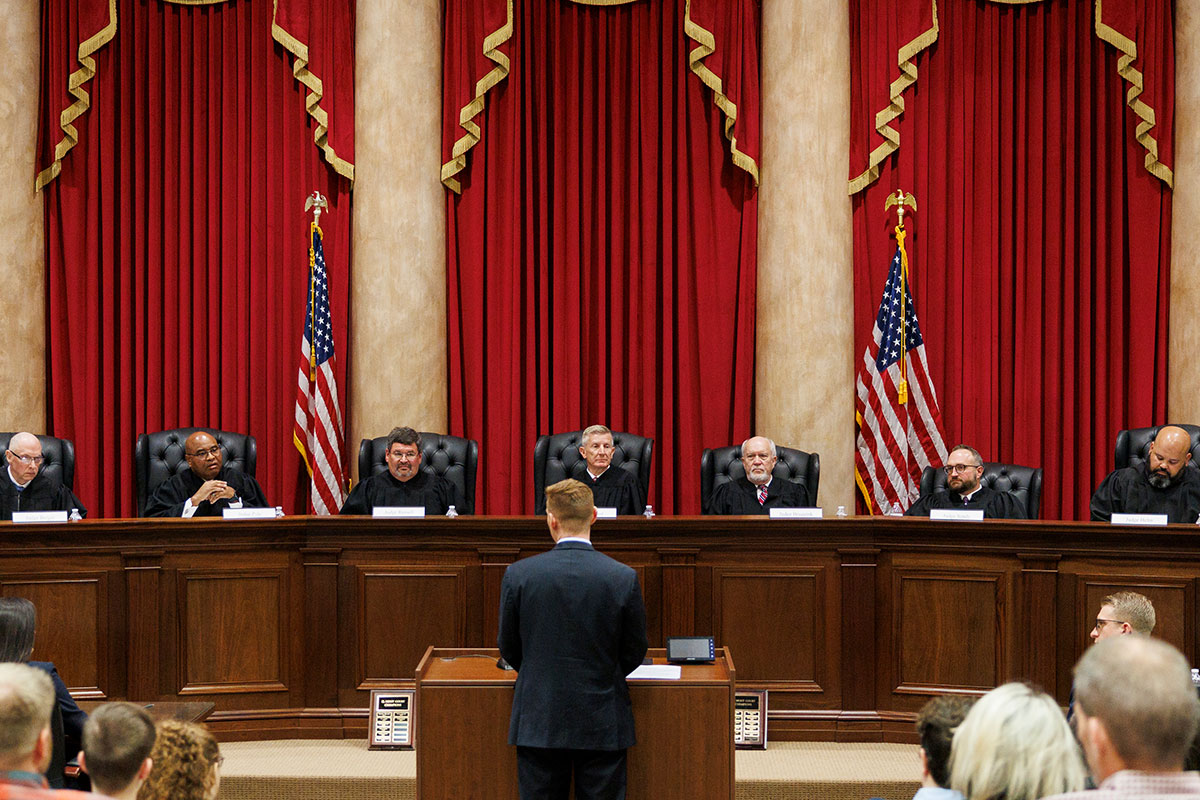Search News Archives
Filter News Articles
Additional Navigation
Liberty alumnus uses testimony to start ministry for pastoral efficacy in addiction crisis
July 19, 2024 : By Abigail Degnan - Office of Communications & Public Engagement
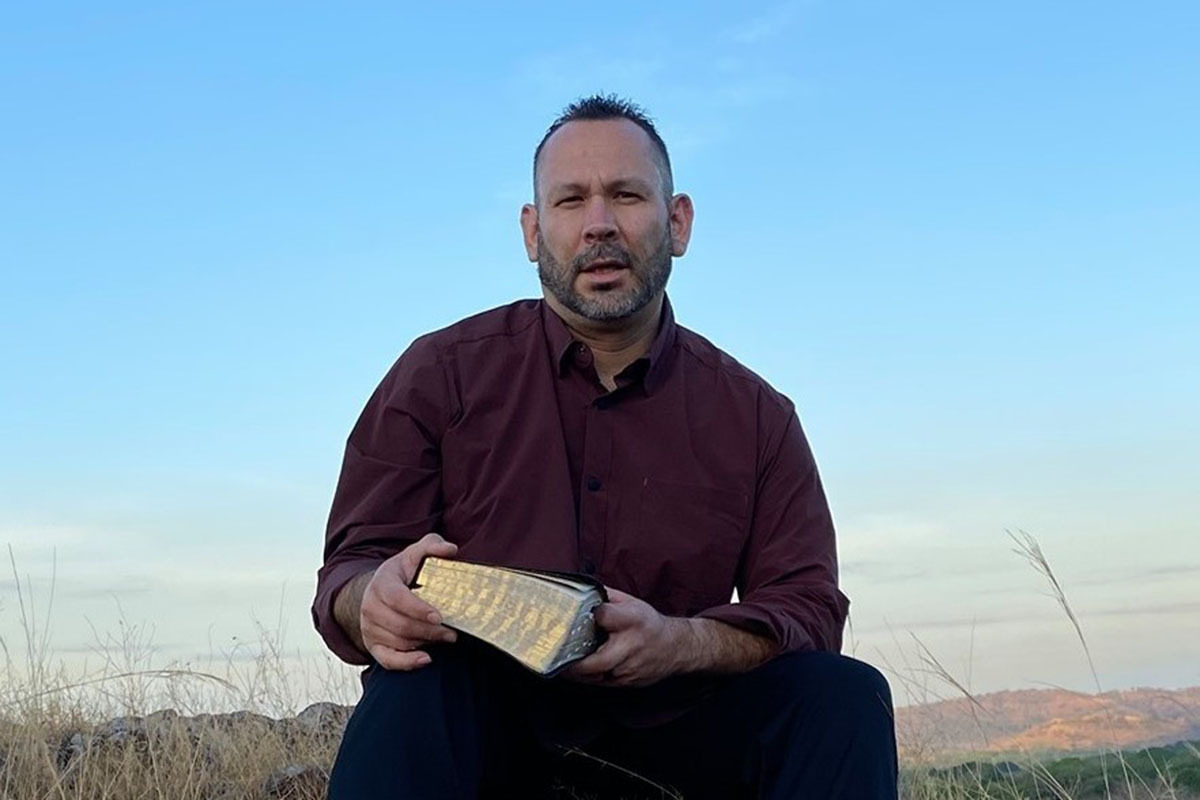
Battling drug addiction, attending and failing 15 recovery programs, and completely rejecting Christ are just a few of the hurdles in Liberty University alumnus Matthias “Matty” Ponce-de-leon’s transformational faith journey.
During his time of intense darkness, he never thought he would one day assemble and lead the recovery ministry Blessed Hope Ministries (BHM). He turned to Christ after hitting his lowest point in 2006, evoking a passion for helping others struggling with addiction.
Ponce-de-leon attended an Episcopalian church as a child, but he grappled with its role in his life. In his mind, he didn’t need it.
“I was around 14 or so when I had the opportunity to decide not to go to church anymore,” he said. “I was really searching, and something was missing. I didn’t realize that what was missing was Christ. I tried to fill that hole with a lot of things.”

At that same age, Ponce-de-leon began drinking alcohol and shortly later started using cocaine and heroin. It didn’t take long before he reached “full-blown addict” stage.
After high school, he earned the prestigious Peabody Scholarship at John Hopkins University, but he turned it down to attend a school in north Philadelphia, where the largest open-air heroin market on the eastern seaboard was located.
“I always think of Titus 3 when I’m sharing my testimony, where it says we ourselves also are sometimes foolish, disobedient, deceived, self-serving, living in malice and envy, hating one another,” he said. “I had come to that place (of disobedience) over those few years since removing myself from a church environment. I developed a very anti-Christ attitude.”
Ponce-de-leon was in his 16th institution for recovery, located in North Carolina, and had been there for five days when he hit rock bottom. After attempting to find drugs during his stay and being caught by the institution’s director, the director didn’t scold or kick him out. Instead, he encouraged Ponce-de-leon to pray.
As Ponce-de-leon sat in his room, he remembered the many people who had shared Christ with him over the years. He then experienced what he called a “movement of God’s sovereign symphony.”
“I knew my hopelessness, and I knew who I needed to cry out to,” he said. “I prayed what I might describe today as a ‘theologically unsound’ prayer of salvation, but God knew my heart, and I’m grateful that it’s not dependent on me but dependent on Him and His grace.”
On Aug. 25, 2006, at 6:59 p.m., Ponce-de-leon gave his life to Christ. He was 29 years old and only five days sober. Despite surrendering his life to Christ, Ponce-de-leon’s cravings persisted during his withdrawal phase.
“I didn’t have one of the miraculous events where my desire to do (drugs and alcohol) went away and never came back ever again,” he said. “When I got up from my knees in front of that bed, I was still dope sick. But, the spirit of God had entered in my heart, and my desire to not do (drugs and alcohol) was stronger than the desire to do it.”
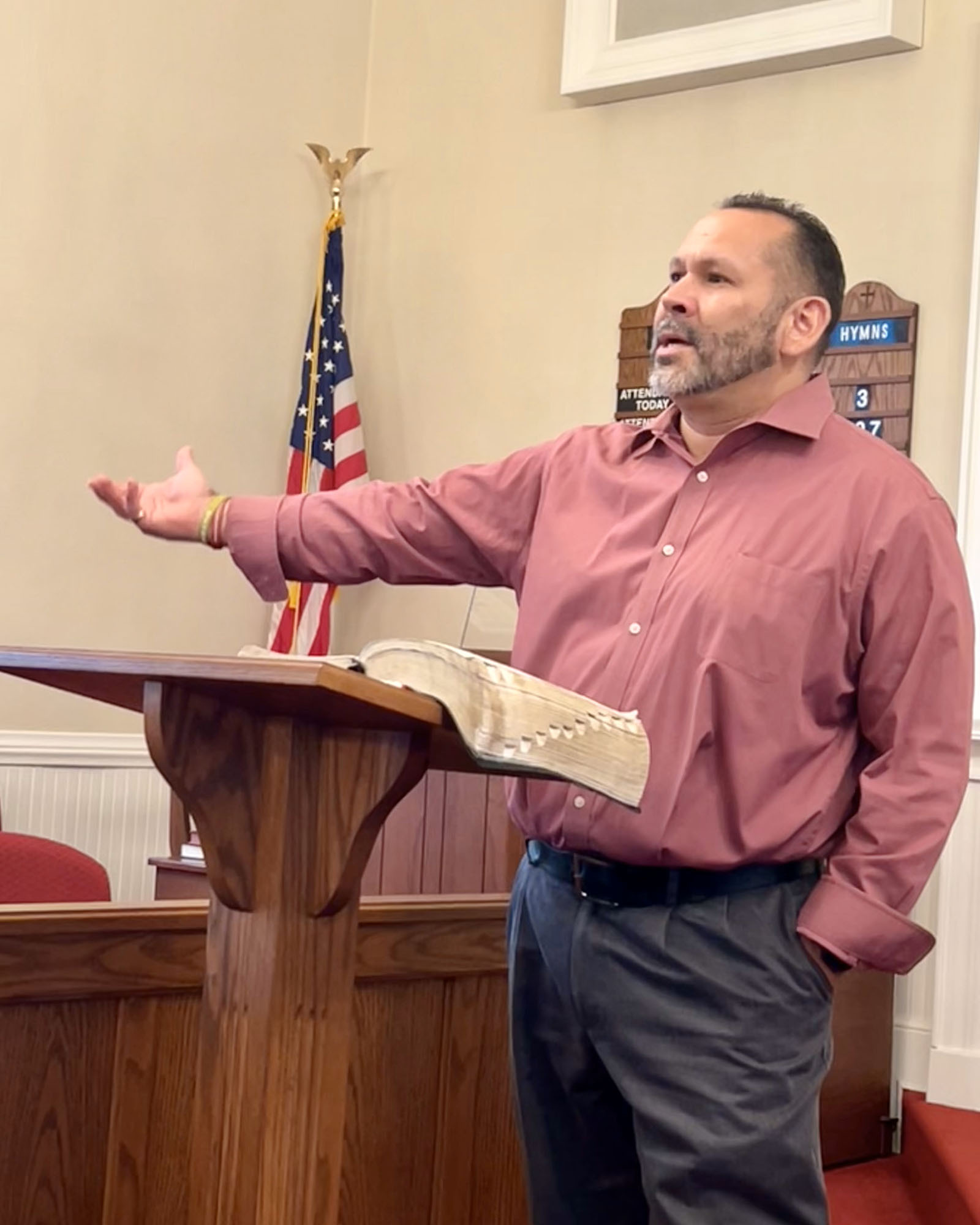
Ponce-de-leon joined Friendship Baptist Church in Elkin, N.C., where he found unconditional love, support, and guidance during his recovery journey. After hearing the messages at Friendship, he quickly discovered his calling to preach.
From 2012 to 2020, he pastored at two other churches in western North Carolina, then he returned “home” to pastor Friendship in 2023.
It was through this pastoral calling that he decided to enroll in Liberty University Online Programs, earning a B.S. in Religion: Christian Ministries in 2018, an M.A. in Christian Ministries in 2020, an M.A. in Pastoral Counseling: Addictions and Recovery in 2021, and a D.Min. in Spiritual Formation in 2023.
His doctoral thesis, titled “An Integrated Approach to Developing Pastoral Efficacy for Addiction Crisis Ministry,” is available on Scholars Crossing, Liberty’s institutional repository of scholarly and creative works by faculty and students.
While at Liberty, in 2019, Ponce-de-leon launched Blessed Hope Ministries to provide training and resources to pastors and leaders who are dealing with addiction crises in their congregations.
The training Ponce-de-leon provides is completely free to churches, and he meets with leaders in person to instruct them on effectively guiding individuals through alcohol and drug addiction crisis, finding rehabilitation centers and understanding the world of addiction through a biblical lens.
“The more prepared we are to be meaningfully helpful in the front end of an addiction crisis, the more chances we’re going to have to disciple people through their recovery journey and be part of that long-term recovery process,” he said. “The recovery place is the body of Christ.”
Ponce-de-leon said Liberty gave him the education and support necessary to effectively lead as a pastor and start BHM, since he began his journey with limited knowledge of running a church and starting a ministry.
“When I started at Liberty, I had sent five emails in my life,” he said. “I had no use for computers. (Liberty) walked me through the whole process of getting started online and just helped me navigate the different things that I had to navigate. … I always had professors who were so encouraging, and I felt support every step of the way.”
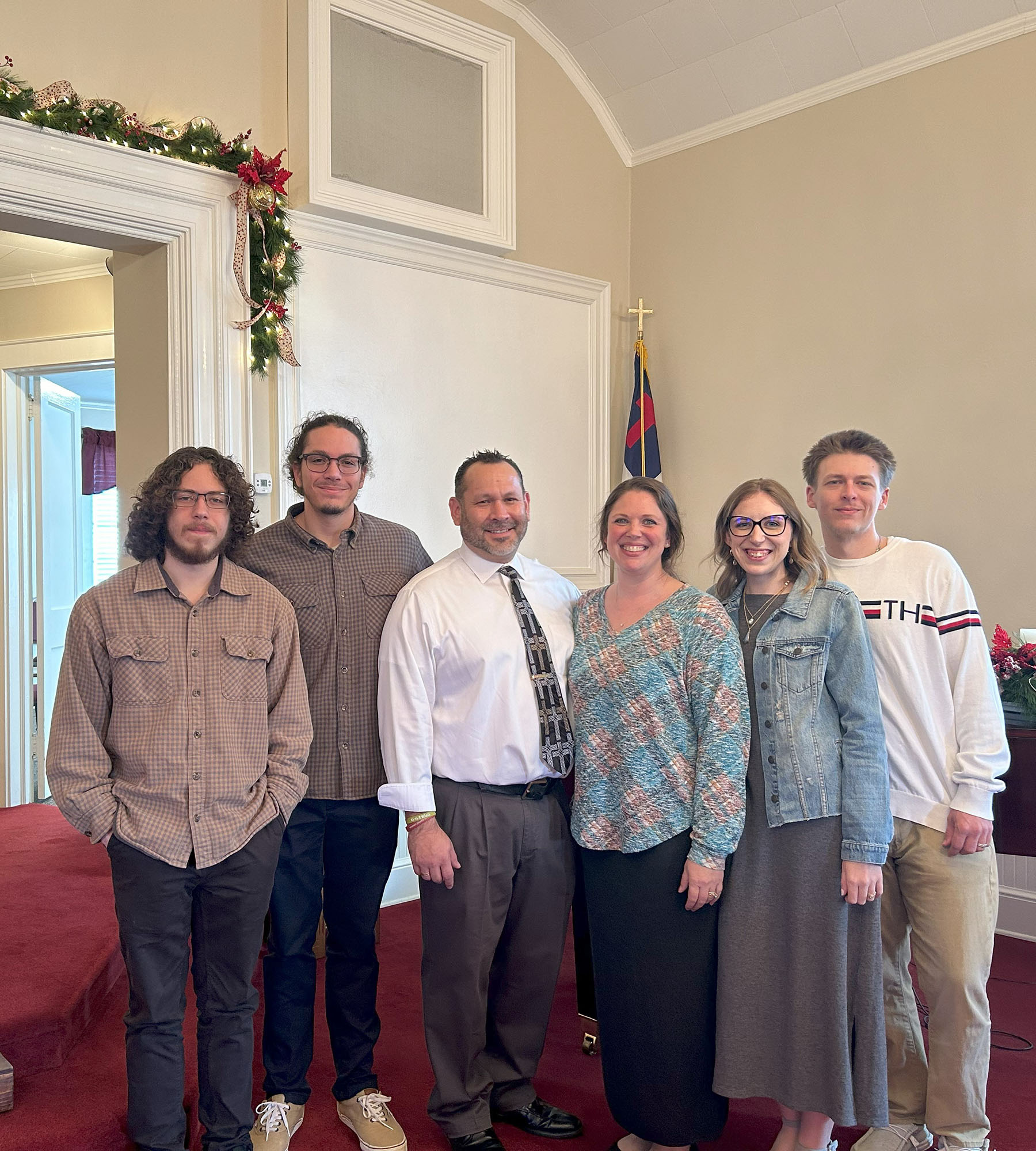
He is still in touch with his doctoral mentor, Paul Esswein.
“Matty was personally invested in the doctoral project,” Esswein said. “What excites me most about his work is that it is still taking place today. He continues to use the material he developed in the doctoral program to reach more pastors and church leaders, even though he already graduated. In my opinion, it will have a kingdom of God impact and not simply a local church one.”
Ponce-de-leon has now been sober for 18 years, and he is excited to be using what he learned at Liberty to guide others to recovery in Christ.
“Through my journey at Liberty, I felt so prepared for what God has called me to do. I know it’s God working through the university, the teachers, the professors, the material, the curriculum, the history — all of those things,” he said. “From the time I started, it was my dream to come all the way through the process and be equipped to help the church minister to addicts. I know I’ve got more growing to do, but man, it has been a blessing.”
